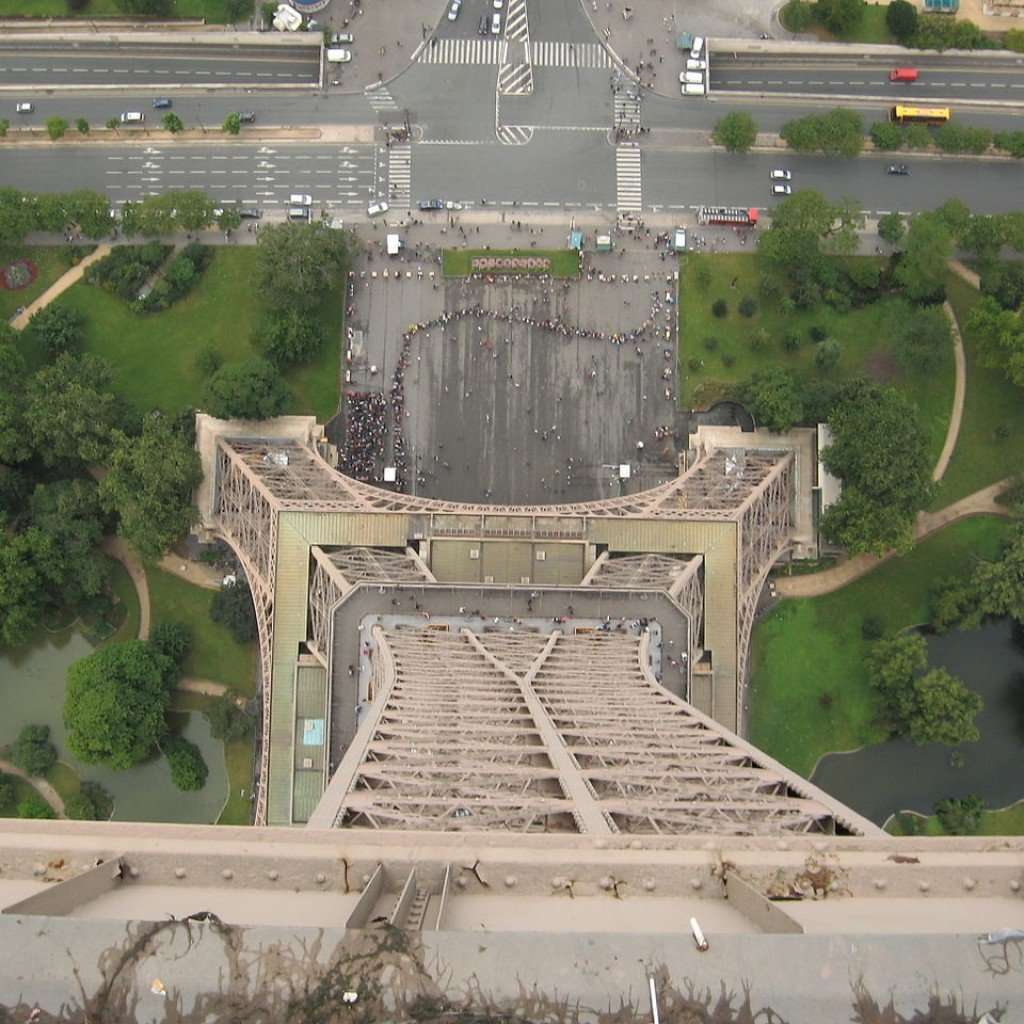Ever feel like jumping off a cliff for no reason? Maria Mandic explores the fascinating science behind why we often find ourselves contemplating doing insanely dangerous things
Standing at the top of the Eiffel tower on a beautiful, sunny day in Paris, my first thought was ‘I could jump’. Not ‘What a stunning view of a culturally rich metropolis’ or ‘I wonder what the City of Light looks like at nighttime’, but ‘I could jump off of this tower in just one leap’, and I wondered why. A quick search on Google showed me that I wasn’t alone. There were numerous paranoid reddit threads, tumblr posts and definitions, from Collins to Urban Dictionary, demanding explanations for their seemingly suicidal urges.
Digging a little deeper, driven mostly by morbid curiosity but also by a slight doubt of my own sanity, I found that the temptation we feel when we’re standing on the edge of a cliff to take a step forwards and fall into oblivion is so common that the French actually have a name for it; ‘L’appel du Vide’. When translated into English, it means ‘Call of the Void’ and unlike most foreign idioms, this one makes sense even when translated literally.
Some more research yielded scholarly articles, which gave the French phrase a proper English translation termed ‘High Place Phenomenon’ (HPP). A study conducted in 2012 at Florida State University on 431 undergraduate college students investigated the volunteers’ experience with HPP, depressive and anxiety symptoms, suicidal ideation and behavioural history.
The original explanation for the phenomenon was suicidal ideation but when such a high number of participants reported feelings associated with what is now known as HPP, even those with no history of suicidal thoughts, the idea of HPP was born. The study reported experiences of HPP with those who have suicidal thoughts and those who don’t, suggesting this was a concept separate from suicide ideation and perhaps something most people experience in their lifetime.
However, the phrase High Place Phenomenon is misleading. The same concept can be applied to the impulse you get when driving and you feel the need to suddenly swerve and crash into a tree or abruptly jerk the steering wheel to the left on a bridge. I’m sure you are familiar with the scenario in a tube station, you see the train approaching the platform, you’re near the tunnel it’s exiting and you feel your knees stiffen as the impulse to jump in front of the train flashes through your mind. These examples still adhere to the concept of HPP as the apparent suicidal intention is still present, but in different forms of self-destruction.
The study suggested the reason for this phenomenon was a misinterpretation of a safety or survival signal, with fear playing a huge role. If an individual is more sensitive to these safety signals, then they will be more likely to experience the phenomenon. This is especially true for people with higher levels of anxiety as they have a higher tendency to misinterpret environmental and bodily signals. For example, when I was walking on top of the Eiffel tower, I wandered near to the edge where there’s a railing and metal cage enclosing the space. As I leaned into the cage I saw the sharp drop from the top of the tower to the ground and inadvertently stepped back. I then became aware of the fact that I wasn’t in any actual danger as it was perfectly safe. So why did my mind tell my body to step backwards? It could be because I wanted to jump and my brain was in fact saving me.
This supports the previous study’s title ‘An urge to jump affirms the urge to live’, as the experience of the phenomenon could in fact reflect an individual’s sensitivity to internal signals which in turn affirms their will to live. The idea put forward by Sigmund Freud of a “death wish” where he stated that ‘everything living dies for internal reasons’ and ‘the aim of all life is death’ could explain the impulse to jump off of high places. It is proposed that the phenomenon actually demonstrates the strength of the survival instinct. Therefore, even with Freud’s proposal of such emotions being present in the human brain, we continue to avoid danger when confronted with the Call of the Void.

PlaceboJesus on October 19th, 2018 at 03:59 UTC »
This one hi-rise we were finishing, I had to make sure the balcony doors were closed because the balconies didn't yet have railings.
I'd be moving quickly because it was a lot of suites.
The ones where you could see the balcony from the front door, as I approached, I'd get the bizarre urge to start running and just run right off the edge.
Clearly, I never did it. But it thrilling and a bit creepy.
Vorpalax on October 19th, 2018 at 03:56 UTC »
I call it the "reminding myself very specifically what not to do" feeling.
squealor on October 19th, 2018 at 03:32 UTC »
It's also related to wanting to drive into oncoming traffic. Same words.